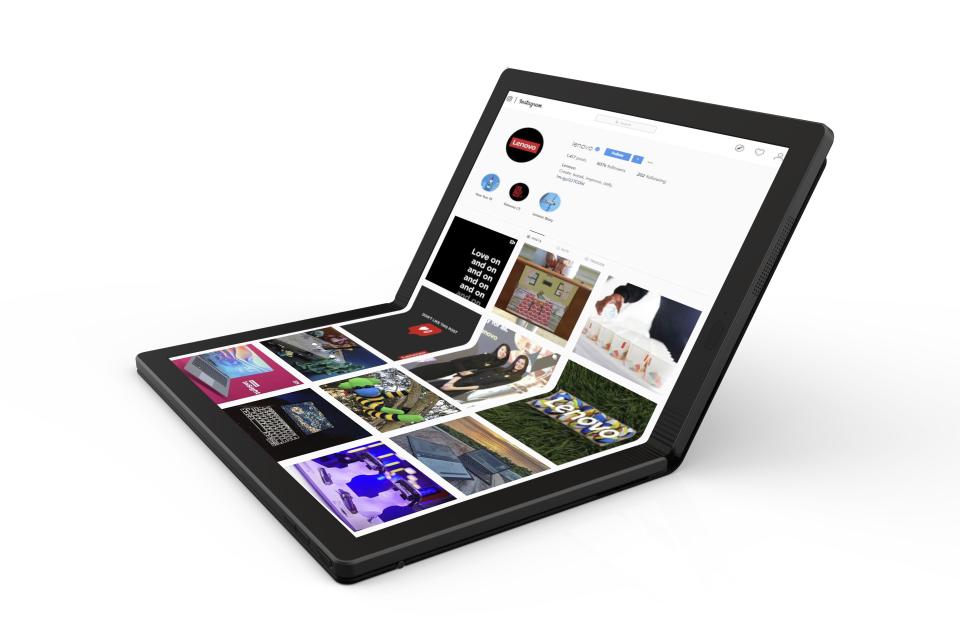Tariffs and new streamers will cost you in 2019

This was "Streaming Week," and the action took place in New York, where Disney, Warner Media and others gave ad buyers and the media community a sneak peek at what's coming down the pike.
That would be more subscription services, with programming that used to appear elsewhere – like "The Office" on Netflix – moving to the new ones and more requests for you to spend more money to watch TV.
Ka-ching.
This was also the week President Donald Trump doubled down on his trade war with China, announcing higher tariffs that threaten to add 25% or more to the cost of electronic devices and other products produced in China. These would go into effect on June 25.
The list of some 3,805 products includes popular everyday items like laptops, tablets and TVs. Chinese giant Lenovo had the No. 1 market share in personal computer shipments in 2018, over Hewlett-Packard, Dell and Apple.

In the United States, many big-box retailers offer Chinese brands like TCL and Hisense TVs offered at substantial discounts. The "Roku" branded TV featuring a built-in streaming player from Roku is made by TCL.
For Apple, the big question is whether America's best-selling consumer device – the iPhone, which is already pricey to begin with, starting at $1,099 for the top of the line model – will end up with a 25% tariff.
Nomura analyst Jeffrey Kvaal said he believes it will and warned investors about potential issues with Apple's earnings. “A 25% tariff on device imports a pain any way they slice it," he said in a note to investors.
JP Morgan predicted the tariffs would raise the price of the iPhone XS to $1,142 from $1,000.
But Gene Munster, an analyst and investor with Loup Ventures, takes a minority opinion that Apple will survive without being hit.
"Apple is based in the United States," he says. "So the probability of Apple being impacted is slim to none."
DJI, the Chinese company best known for selling drones and cameras, would be hit, Munster says, along with makers of low-cost phones most consumers haven't heard of, like One Touch or Oppo.
Huawei Technologies, ranked No. 3 worldwide in phone shipments after Samsung and Apple, doesn't sell a lot of phones in the United States and apparently won't be growing here either. The Trump administration put the company on the Commerce Department's "Entity List," essentially banning it from doing business here.
Meanwhile, in streaming, Disney announced that it was now soon to be the majority owner of Hulu, the company that had originally been formed by three of the four broadcast TV networks as a way to reach cord cutters.
Disney, which now owns Fox and ABC, bought out NBC-owner Comcast, and said NBC shows like "The Office" and "Saturday Night Live," would remain on Hulu for five years.
NBC meanwhile, is launching its own streamer, set to debut in 2020, that will include ads. The service will be free for cable subscribers, not so for cord cutters.
Disney has removed its movies and other programming from Netflix to prepare for its new Disney+ service, which launches Nov. 12 and will cost $6.99 monthly.
Warner Media, home of HBO and the Warner Bros. movie and TV studio, is also set to launch a new service and admits that Warner programming seen elsewhere will leave to "put on our own (streaming) product," AT&T CEO Randall Stephenson said this week. AT&T owns Warner.
Apple also has a new streaming service, Apple TV+, set to launch in the fall with programming from Steven Spielberg, Oprah Winfrey and Reese Witherspoon.
"People will be paying more for streaming, there's no doubt," says Munster.
In other tech news this week
DJI, the Chinese drone and camera manufacturer, introduced the Osmo Action, a clone of the popular GoPro Hero action camera. The big difference: a color preview screen on the front for video selfies and a promise by the company of steadier video images. True? Take a look at our first look back-to-back test.
Facebook and Eventbrite announced a new partnership to let anyone with a Facebook page create tickets for their events. It's aimed at everyone from cooking classes and art classes to small businesses putting on presentations in their stores. The tickets can be accessed for free or sold.
Sprint and Verizon put the first 5G phones for their networks on sale. Sprint said the LG V50 ThinQ 5G will be available on May 31, while Verizon began this week selling Samsung's first 5G phone, the Galaxy S10.
This week's Talking Tech podcasts
This week's Talking Tech podcasts
We reviewed that new biography of Apple CEO Tim Cook.
Amazon introduced new home security features for Alexa.
How tech has changed photo touring
Finally, readers of Talking Tech probably know we recently spent just over two weeks touring Spain and Portugal. Read all about it!
That's it for this week's Talking Tech wrap. Subscribe http://technewsletter.usatoday.com, listen to the daily #TalkingTech podcast on Apple Podcasts, Stitcher or wherever you get your podcasts and follow me (@jeffersongraham) on Twitter, Instagram and YouTube.
This article originally appeared on USA TODAY: Tariffs and new streamers will cost you in 2019
